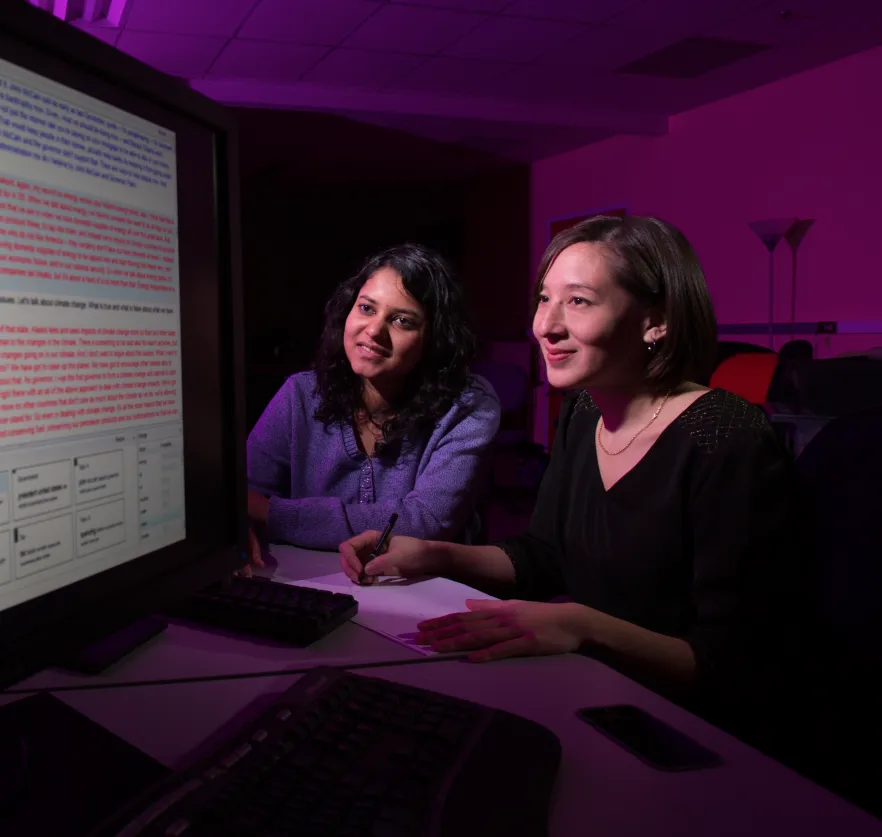
Two researchers in the Computational Linguistics and Information Processing (CLIP) Laboratory were recently recognized for their academic work at an international conference on computational semantics.
Marine Carpuat (on right in photo), an assistant professor of computer science with an appointment in UMIACS, and Yogarshi Vyas, a third-year doctoral student in computer science, received the Adam Kilgarriff Best Paper Award for their research on the semantic relationships between words.
The award—given at *SEM 2017: The Sixth Joint Conference on Lexical and Computational Semantics held last month in Vancouver—honors Adam Kilgarriff, a noted computational linguist who died in 2015.
“Detecting Asymmetric Semantic Relations in Context: A Case Study on Hypernymy Detection,” introduces a testbed for detecting hypernymy, which is an asymmetric relation between words.
A key challenge in natural language understanding is building models that can understand the meaning of words and the relations that exist between them, says Vyas, who was lead author on the paper.
One such relation is hypernymy, which can be defined as an “is-a” relation. For example, the word “game” in the sentence, “The championship game was played in NYC” is a hypernym of the word “chess” in “Anand is a chess champion”—because “chess” is a type of game.
“Our paper introduces a new dataset for the problem of hypernymy detection that requires taking into account the context in which words are used,” Vyas says. “A major strength of our dataset is that it allows us to identify how models for this task behave in two aspects: first, the sensitivity of models to changes in context and second, the ability of models to accurately detect the direction of hypernymy.”
He adds that this detailed analysis allows them to separate the impact of these factors, paving the way for better models of word meaning in the future.
About CLIP
The Computational Linguistics and Information Processing (CLIP) Laboratory at the University of Maryland is engaged in designing algorithms and building systems that allow computers to effectively and efficiently perform language-related tasks.
The lab’s diverse community of faculty, postdocs and students pool their academic resources on language data problems in order to gain scientific insight and do things with language that people find useful.